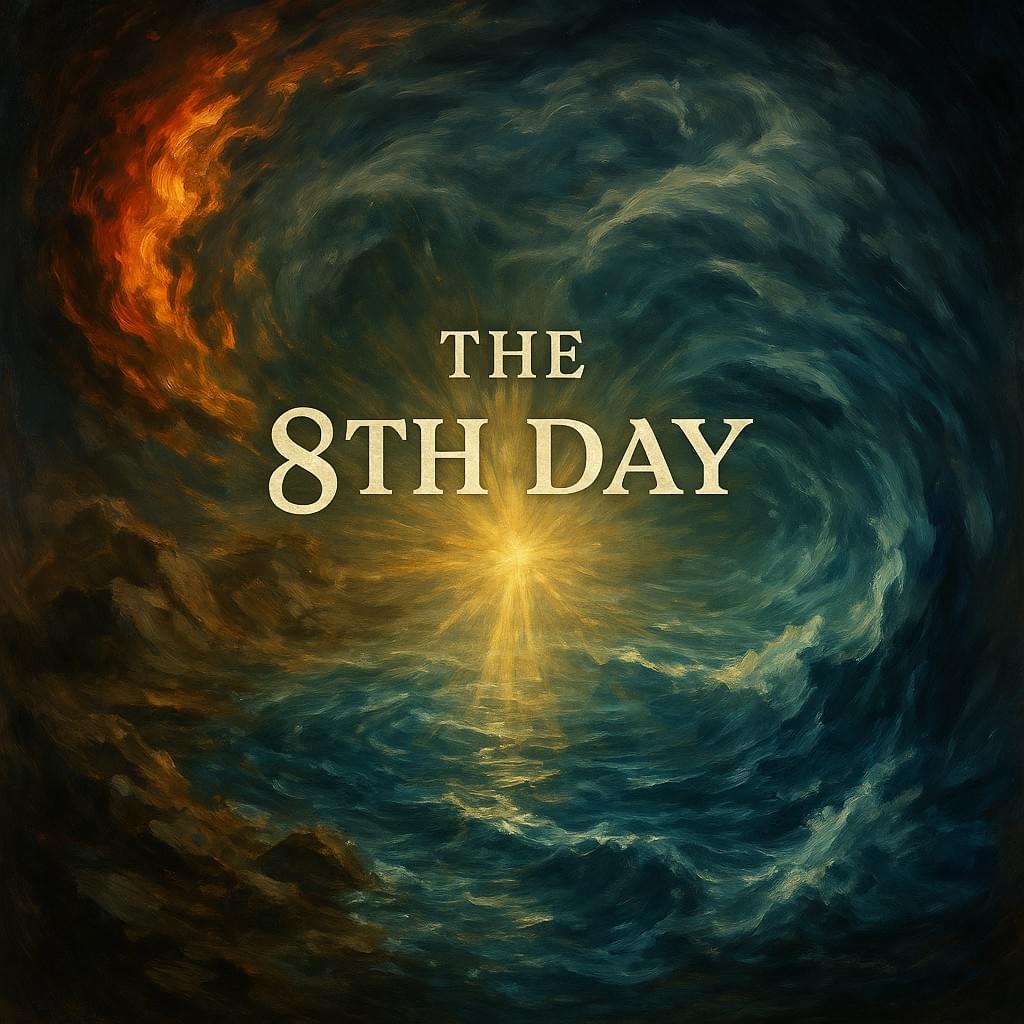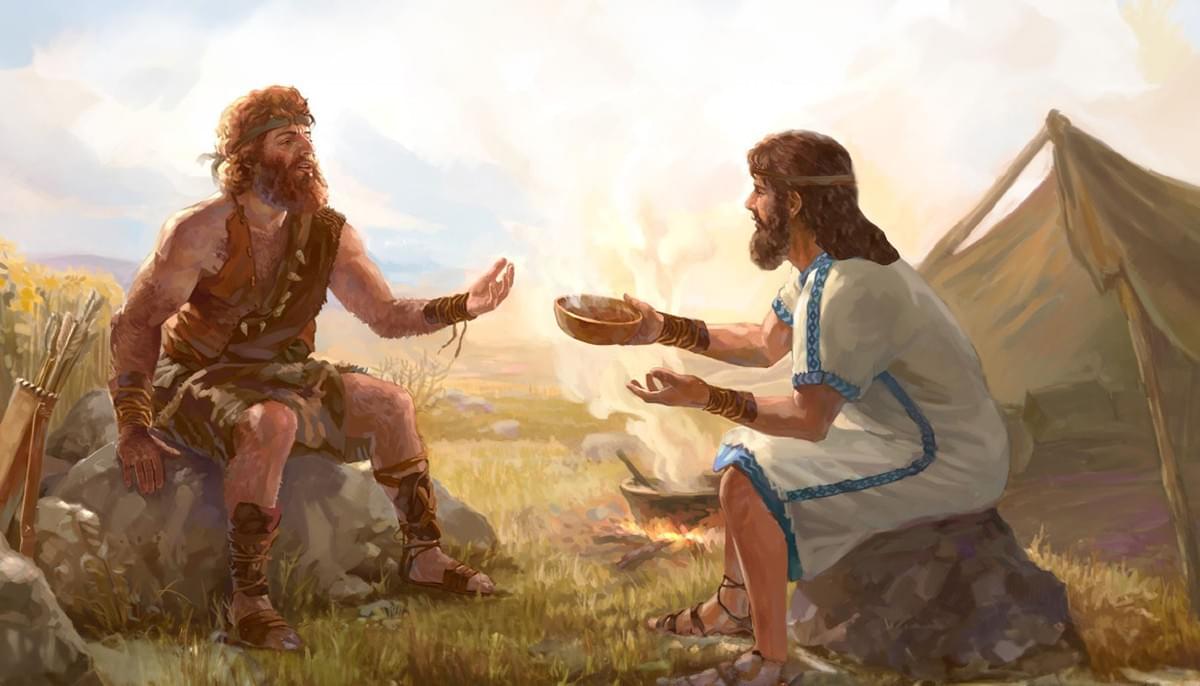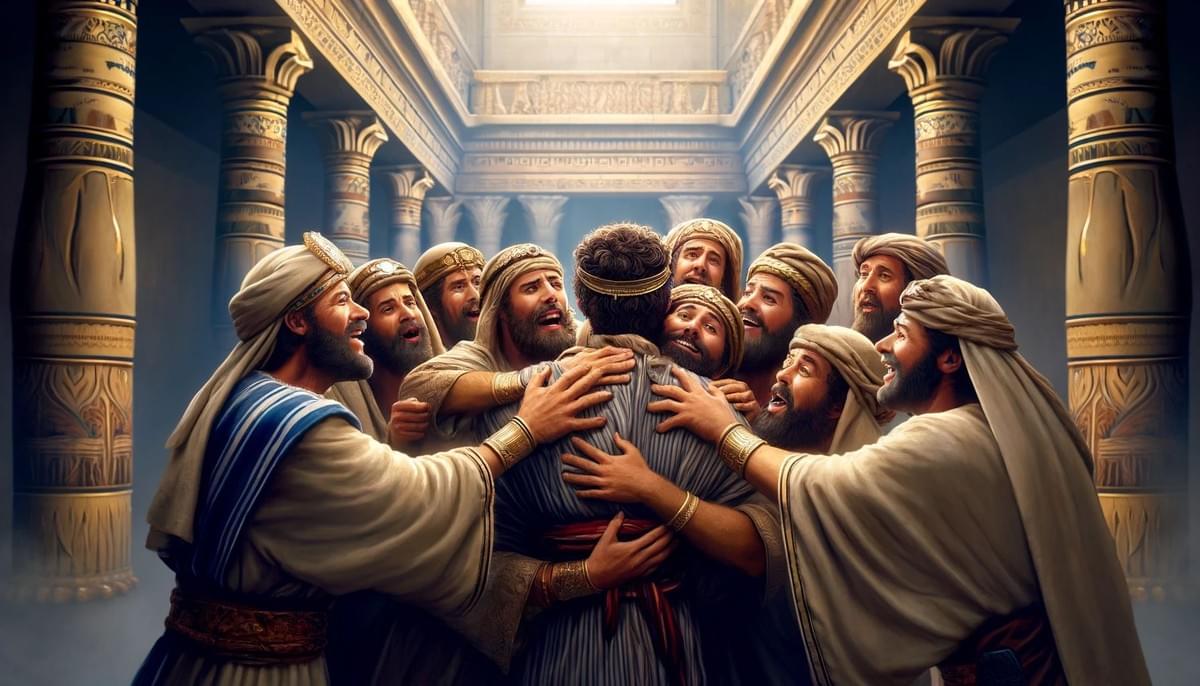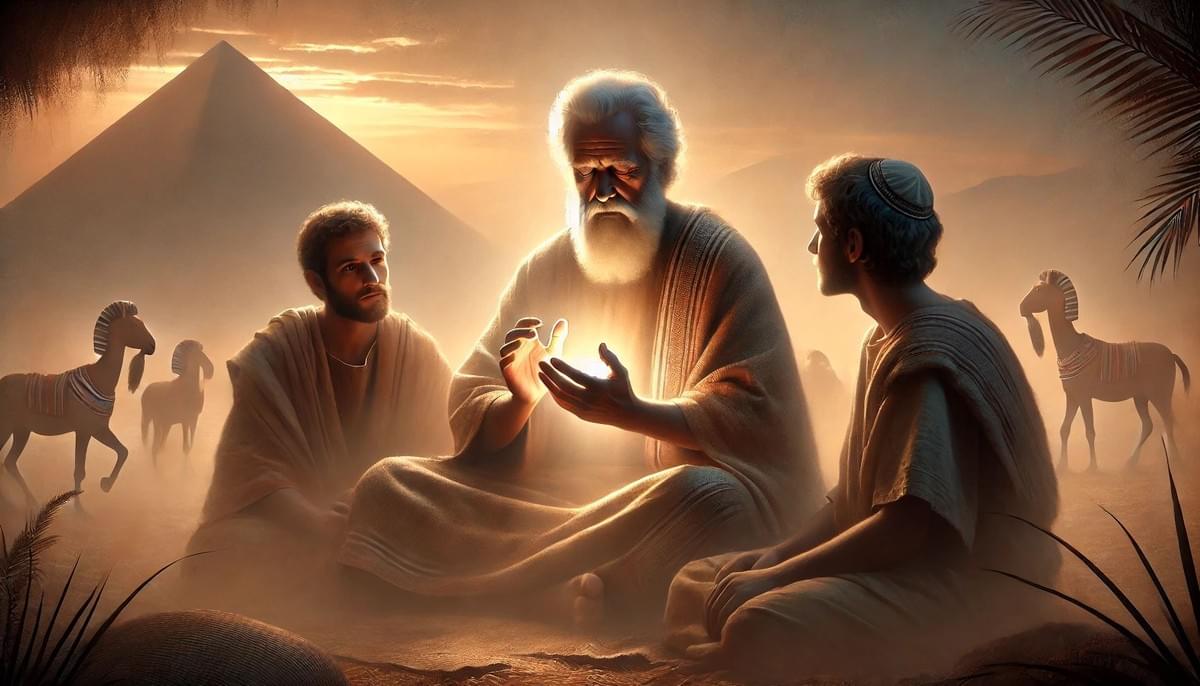
Explore Our Faith
Delve into the foundational principles that guide our understanding of the Scriptures.
Foundational Principles
Understanding the core tenets of our faith.
- Explore the divine nature and qualities of YHVH as expressed in the Commandments. This essential insight guides our connection with the Elohim. A lsit of scriptures to help you see.
- Exodus 20:1–17, Exodus 20:22–26, Deuteronomy 5:6–21, Deuteronomy 6:1–9, Deuteronomy 7:9–11, Leviticus 22:31, Ecclesiastes 12:13, Matthew 5:17–19, John 14:15, 1 John 2:3–6, 1 John 5:2–3, Revelation 14:12, Romans 7:12, James 2:10–12, Matthew 19:17–19, Targum Onkelos – Exodus 20, Targum Pseudo-Jonathan – Exodus 20, Sirach (Ecclesiasticus) 2:15–16, Sirach 15:15, Sirach 17:26–27, Sirach 19:20, Wisdom of Solomon 6:17–18, 2 Esdras 7:20–24, 2 Esdras 9:30–32, 2 Esdras 14:5–6, 1 Esdras 9:37–40, 2 Esdras 15:24, 2 Baruch 38:2–4, 2 Baruch 44:6–14, 2 Baruch 48:22, 1 Baruch 4:1, 1 Enoch 99:2, 1 Enoch 93:4–5, 1 Enoch 91:4–5, Enoch 33:2, 2 Enoch 34:1–2, Jasher 6:19, Jasher 22:14, Jasher 24:9, Jasher 55:3, Jubilees 1:5–8, Jubilees 6:17, Jubilees 15:25–27, Jubilees 23:26, Jubilees 30:16–20, Testament of Reuben 3:8–10, Testament of Simeon 3:4–6, Testament of Levi 13:2–3, Testament of Judah 20:3–5,Testament of Zebulun 10:2, Testament of Dan 5:1–3, Testament of Naphtali 8:6–7, Testament of Benjamin 10:10–11.
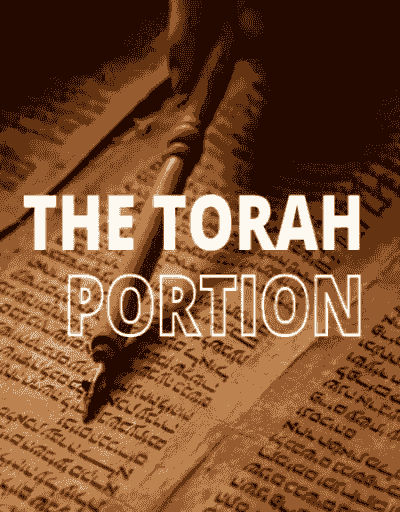
Weekly Torah Portions
Learn about the significance of the Scriptures between YHVH and His people, and how it impacts our daily lives.
(Book of the Natsarim 4:11-10). When this man had departed, Yeshua said to his disciples, “The Books of Wisdom should be the treasure of all men, for they contain the explanations and instructions of YHVH. When men say, ‘Woe,because I am smitten with calamity; why does YHVH let disaster strike in this manner, or why is my lot in life unlike that of others?’ be sure they have not unlocked the door of their
treasurehouse.“By reading the Books of Wisdom you will be brought to an understanding of the nature and intention of YHVH, and life will then have meaning and purpose.
(Book of the Natsarim 6:26). Yeshua said, “Do what is right and just. Study the Books of Wisdom and live according to their teachings. Exploit no one, and work for the
Rule of YHVH.”
Salvation is found in no other name but Y’shua, for in Hebrew the very name יֵשׁוּעַ (Yeshua) comes from the root יָשַׁע (yashaʿ), meaning “to save, deliver, or rescue” (Strong’s Hebrew Concordance H3467).
Thus, when Gavra'el the Mal'akh declared His name would be Y’shua (Matthew 1:21), (Luke 1:26–38) it was not a mere title but a prophetic revelation: “for Y'shua will save His people from their sins.”
Through His atoning sacrifice, Y’shua bore our iniquities (Isaiah 53:5–6), fulfilled the righteousness of YHVH (Romans 8:3–4), and became the One who knew no sin yet was made sin for us (2 Corinthians 5:21), so that we might be reconciled to YHVH.
Peter testifies, “by His wounds you were healed” (1 Peter 2:24). In Him, salvation is not just an act but an identity of Y’shua Himself is the gift of the Av (Father), the embodiment of YHVH’s deliverance for all who believe and obey YHVH's commandments. (Deuteronomy 11:1),(John 14:15), (2 Esdras 2:46–48)
Learn about the significance of the covenant between YHVH and His people, and how it impacts our daily lives and spiritual journey, when we honor His Holy days. Starting with the weekly Sabbath.
(Exodus, 20:8-11), (Exodus 31:13), (Exodus 31:16-17), (Ezekiel 20:12), (Ezekiel 20:20), (Jubilees 50:8-13), (Hebrews 4:9-10), (Revelation 14:12), (Isaiah 56:2–6).
What is Holy Retribution?
Holy Retribution is the act of YHVH, the righteous Judge, bringing justice, judgment, and repayment against sin, evil, and rebellion. It is not human revenge, which is forbidden, but the divine execution of justice according to His holiness and covenant.
Holy Retribution is the righteous judgment of YHVH against sin, evil, and those who persist in wickedness. It protects the innocent, answers the prayers of the faithful, purges iniquity, and reveals YHVH’s holiness. Believers do not avenge themselves but cry out for His justice, knowing “the battle is not yours, but YHVH’s” (2 Chronicles 20:15).
The imagery of the worm that does not die comes directly from the prophets and is emphasized by Yeshua as a solemn warning of eternal judgment. It represents unceasing corruption, shame, and decay that follows rebellion against YHVH.
Isaiah’s Prophecy“And they shall go out and look upon the dead bodies of the men that have rebelled against Me; for their worm shall not die, neither shall their fire be quenched; and they shall be an abhorrence to all flesh.” (Isaiah 66:24)
Here, the worm is a perpetual reminder of sin’s consequence, and the fire symbolizes YHVH’s unquenchable judgment.Yeshua’s Warning In (Mark 9:44, 46, 48), Yeshua repeats the phrase three times. “Where their worm does not die and the fire is not quenched.” By repeating it, He underlines the permanence and seriousness of judgment.
The worm signifies the never-ending corruption of pride and sin, while the fire points to divine holiness consuming the unrepentant. The worm that does not die is the unending corruption of sin and pride, leading to eternal death.
Yeshua took this upon Himself, becoming the worm on the cross (Psalm 22:6), so that those who repent (teshuvah) and believe in Him may escape the worm of decay and the fire of judgment, entering instead into the resurrection life He offers.
The First Resurrection began with Yeshua rising as the Firstfruits of the dead on the Feast of First Fruits, guaranteeing the harvest of all who belong to Him. At His resurrection, believers also rose (Matthew 27:52-53), bearing witness to His victory.
Scripture and apocryphal writings (2 Baruch 49–52; Testament of Nicodemus; 2 Esdras 7) reveal that the righteous rest in Paradise until the last trumpet, when the dead in Messiah are raised in glorified, incorruptible bodies, and the living are transformed in an instant (1 Thessalonians 4:16-17); (1 Corinthians 15:51-52).
This First Resurrection secures eternal life, hope for us in these last days, glory, and reign with the Messiah. In contrast, the Second Resurrection at the Great Judgment brings shame and condemnation to the wicked, while the righteous receive their reward.
It is the unshakable hope of all who cling to YHVH’s truth of through Yeshua, our salvation.
This thesis examines the reality of spiritual warfare from a biblical, historical, and experiential perspective. Unlike Hollywood’s depictions that sensationalize demons and exorcisms, true spiritual warfare is not about thrill or human pride but about humility, obedience, and the authority of Yeshua the Messiah.
The study begins with the city of Ephesus (Acts 19), a stronghold of idolatry and sorcery, and moves through scriptural foundations such as Ephesians 6:12 and 2 Corinthians 10:4, which reveal that the true battle is spiritual, not physical. It distinguishes between fallen angels who influence nations, unclean spirits that oppress individuals, and human agents who practice forbidden magic (Jubilees, Jasher, Enoch, and Deuteronomy 18).
Drawing from personal testimonies spanning decades of ministry, this work documents real encounters with demonic oppression and deliverance, showing the necessity of humility, prayer, fasting, forgiveness, discipleship, and reliance on the Ruach Ha’Kodesh.
The central conclusion is that deliverance without discipleship is dangerous. True victory comes not by might or power but by YHVH’s Spirit, and only through Yeshua are we made more than conquerors.
The 8th Day is the mystery of YHVH’s eternal covenant. From the beginning, the Torah pointed to it through circumcision on the eighth day, the solemn gathering after the Feast of Booths, and the priestly service that began on the eighth day. These signs all spoke of a new creation beyond the order of seven.
The prophets and hidden writings revealed it further. Adam was promised that after 5,500 years, YHVH would send His Word to save his seed. Enoch saw the plant of righteousness and foretold an age of judgment and renewal. Ezekiel spoke of cleansing and restoration, preparing for a day when YHVH would accept His people again.
Yeshua fulfilled this mystery when He rose on the first day after the Sabbath, the prophetic 8th bringing eternal Life and a new creation. He revealed His glory after eight days on the mountain, and He confirmed His resurrection to Thomas after eight days, sealing the promise of the covenant.
At His return, Yeshua will reign for a thousand years, the great Sabbath of the 7th Millennium. After this time of cleansing, judgment, and restoration, the true 8th Day will dawn: the new heaven and new Adamah.
Then YHVH Himself, Aravat, the Av of Life, will dwell with His people. Death, sorrow, and pain will be no more. His Name will be on their foreheads, and His light will shine forever.
The 8th Day is the eternal Day of YHVH, the covenant of Life that never ends.
The English word “God” traces back to the Proto-Germanic gudan and Saxon gott, terms once used for pagan deities. By the 4th century AD, the Gothic Bible used guth, and by the 6th century BE, Old English adopted the word god, which later became standard in our English Bibles.
Unlike the sacred Name YHVH revealed in Scripture, god was originally a generic title for idols and spirits worship (Deuteronomy 32:17); (Psalm 82:1).
Christianity spread in Europe, and the translators replaced YHVH’s Name with this borrowed title, blurring the line between the Creator and false gods.
For many today, returning to the Name YHVH is about restoring reverence, truth, and distinction in our worship.
The expression “straight and narrow” is derived from (Matthew 7:14), where Yeshua highlights two distinct paths.
The broad and simple path that many choose, leading to destruction. The restricted and challenging path that only a few discover, which leads to life.
This teaching illustrates that genuine discipleship is not the popular or easy option. Walking in the way of the Messiah requires self-sacrifice, perseverance, and the resolve to be different from the cares of this world.
In (2 Esdras 7:14–15), the metaphor extends to include the “straight and narrow gate” and “hard path,” emphasizing not only the trials of the journey but also the risk of deception. The scripture cautions against influences that attempt to entice believers onto easier paths that ultimately lead to downfall.
Collectively, these passages emphasize the profound truth: the route to life is narrow, arduous, and countercultural, requiring dedication and alertness. Nevertheless, it is the sole path that leads to everlasting life.
💀 Walking in the Flesh Reflective Questions
What does it mean to walk in the flesh rather than in the Spirit?
Do my daily choices reflect obedience to YHVH, or indulgence in my own desires?
When I am tested, do I respond through faith or through anger, fear, and pride?
Am I led by temporary pleasure or by eternal purpose?
Do I seek YHVH’s will before acting, or do I act first and justify later?
What thoughts dominate my heart spiritual truth or carnal appetite?
Do I measure success by spiritual growth or by worldly gain?
When confronted by sin, do I repent or rationalize my behavior?
Am I living under the law of righteousness or under the law of lawlessness?
Have I replaced holiness with habit, and faith with tradition?
Do I glorify Elohim in my body and actions, or do I use freedom as an excuse to sin?
Is my heart submissive to Torah, or rebellious against divine authority?
What fruit does my life bear — the works of the flesh or the fruits of the Spirit?
When others see me, do they see a reflection of Messiah or of the world?
Am I at peace with YHVH, or at war within myself?
Do I walk as a servant of righteousness or as a slave to sin?
“For if you live after the flesh, you will die: but if you walk in the ruach do mortify the deeds of the body, you will live.” (Romans 8:13). “Except you repent, you will all likewise perish.” (Luke 13:3)
"REPENT OR DIE"Believers suffer because YHVH uses struggle as a refining fire to purify faith and build endurance. According to
2 Esdras 7, this world is the narrow path leading to eternal life; 2 Baruch 52 says trials prepare the righteous for joy to come; Matthew 5 calls the persecuted “blessed”; Book of the Natsarim teaches that affliction reveals true character; and the Wisdom of Solomon 3 declares the faithful are tested “as gold in the furnace.” Revelation 2:10 says, “Be faithful unto death, and I will give you the crown of life,” and Revelation 21:4 promises that in the renewed creation, “Elohim shall wipe away all tears from their eyes; and there shall be no more death, neither sorrow, nor crying, neither shall there be any more pain.” Likewise, 1Corinthians 15:53-54 reveals that “this corruptible must put on incorruption, and this mortal must put on immortality,” showing that suffering gives way to everlasting victory through Y’shua.
Suffering is not abandonment; it's a refinement. Through adversity, believers are shaped into vessels fit for YHVH’s glory and the immortal life to come, where faith becomes sight and endurance is crowned with eternal life.
“A scriptural journey into the seven barriers that silence the voice of prayer.”
This teaching reveals the spiritual barriers that can silence the voice of prayer and block the flow of YHVH’s grace. It reminds every believer that prayer is more than words; it is a covenant of trust, obedience, and alignment with the will of Elohim.
From the wisdom of Scripture, we learn seven key reasons prayers may be hindered; lack of wisdom, impure motives, misalignment with YHVH’s will, dishonor within marriage, neglect of prayer, ignoring the cry of the poor, and disobedience to Torah. Each principle exposes the heart’s condition and calls us back to the ancient path of righteousness.
This message is a call to teshuvah, a return to purity, obedience, and faith. Like static on a divine frequency, lawlessness acts as a spiritual jammer, blocking the signal of grace. But when the heart is humbled and tuned to YHVH’s commandments, Heaven responds.
Through Scripture, this article guides the reader to pray with wisdom, integrity, compassion, and obedience, restoring unhindered communion with the Creator, for this is the whole duty of man (Ecclesiastes 12:13).
Forgiveness is the release of bitterness and the healing of the heart. It is the choice to let go of the wrongs done to us and to walk in the mercy that YaHaVaH has shown us.
True forgiveness does not ignore pain; it transforms it. It frees the soul from the chains of anger, restores shalom, and opens the door for reconciliation.
When we forgive, we reflect the nature of Yeshua, who calls us to overcome lawlessness with Torah and extend the same grace that has been given to us to those who wronged us.
Baptism, biblical immersion, is the act of being purified, consecrated, and sanctified before YaHaVaH. Purification (H2893) cleanses us from lawlessness.
Consecration (H6942) sets us apart for YHVH’s service.
Sanctification (H6942) empowers us to live a holy life through the Ruach Ha-kadosh.
Through immersion, we die to the old life, are renewed in Messiah Yeshua, and become vessels dedicated to the Kingdom of Shamayim.Commandments We Can Keep
Not all commandments in the Torah require a Temple, priesthood, or the land of Jerusalem. Many were given as Chovot ha-guf, duties of the person, meant to be lived out wherever YHVH’s people dwell. These include the commands to:
Love and fear YHVH, Walk in His ways,Keep His Name holy,
Reject idols and false worship, Live and walkin truth, justice, and compassion, Honor parents and elders,
Protect life. Obstain from fornication, embrace purity,
Avoid theft, deceit, and oppression, Care for the poor, the widos, opherns and the fatherless, and stranger, when they are vulnerable.Study Torah and the Books of Wisdom, Pray, fast, repent, and seek righteousness, These commandments form the daily covenant walk, not rituals of a distant sanctuary, but a living way of life.
They shape how we speak, how we work, how we love, how we raise children, and how we treat others. Yeshua did not abolish these commands. He lived them, and taught them,, The Torah is now written on our hearts, who are under the Renewl covenent.
The Grace of YHVH gives us the ablity to walk out Torah, It gives us a desirer and calling us to walk in obedience not by fear, but by faith, love, and a sound mind, with a complate devotion to YHVH.
Why Do We Pray?
Prayer is to be a communion with YHVH. It is not merely asking for things, but entering into a relationship, alignment, and obedience with the will of YHVH.
Through prayer, we acknowledge His sovereignty, express dependence, and open our hearts to His instruction. We pray to draw near to YHVH, as prayer refines our ruach, humbles our pride, and aligns our desires with His purposes.
It is how we seek wisdom, confess transgressions, offer gratitude, and intercede for others. Prayer strengthens faith, sharpens discernment, and equips us to endure trials.
Prayer does not change YHVH; it changes us. It trains the heart to listen, the mind to submit, and the soul to trust. Through prayer, we participate in His work on Adamah, standing in the gap between Shamayim and humanity.
Ultimately, prayer is an act of love, loyalty, and covenant, walking with YHVH as His children who seek the face of their Father, in trust through Y’shua our Messiah.
From ancient promises to eternal fulfillment.
Understanding the Covenant explores the divine agreements that shape the relationship between YHVH and His people, tracing their roots from the Torah through the prophets and into their ultimate renewal in Messiah Yeshua. This study reveals how the covenant is not merely an ancient ritual, but a living bond of love, obedience, and faith, calling us to walk in holiness, honor His commandments, and embrace the eternal promises fulfilled in Yeshua.
Scriptural Foundations
Connecting teachings to the Word of YHVH.
WHO AM I?
Creation Of Man
Genesis 2:67, Psalm 8:4–6, Psalm 139: 13-18, Ecclesiastes 3:1, Jeremiah 1:5, Isaiah 43:7, Isaiah 45:9–12, Luke 3:38,Romans 8:29,1 Corinthians 11:7, Colossians 3:10,James 3:9, Wisdom of Solomon 2:23, Sirach (Ecclesiasticus) 17:1–4,2 Enoch 44:1–3, 2 Enoch 65:1–2, 2 Esdras 3:4–5, 2 Esdras 6:54–56, 2 Baruch 15:7–8
These scripture illustrates how YHVH created humanity in His likeness, highlighting our special bond with the Father of Creation and our intended role in our life. A comprehension of thes verse is essential to understanding our true identity.
The Ten Commandments serve as a moral compass for our lives, outlining essential principles for living in harmony with YHVH and one another. Reflecting on these commandments helps us align our actions with His will. Below is an outline of the Commandments.
01. No Shedim (gods), no Idols, no Graven Images. Worship YaHaVaHa.
(Exodus 20:1-6)
02. Do not misuse YaHaVaH's name, do not shame the sanctity of His Name.
(Exodus 20:7)
03. Honor the Sabbath day, no earning money, it's our day of rest.
(Exodus 20:8-11)
04. Honor your father and mother, long you will live.
(Exodus 20:12)
05.No adultry keeps the marriage bed pure.
(Exodus 20:13)
06. Do not murder, for life is what you give.
(Exodus 20:14)
07. Do not steel let your hands endure.
(Exodus 20:15)
08. Do not bear false witness or take a bribe.
(Exodus 20:16)
09. Do not covet and cause you shame.
(Exodus 20:17)
10. Do not stand on an altar of falsehood.
(Exdous 20:23-26)
Jeremiah 6:16 'Stand at the crossroads and look; ask for the ancient paths, ask where the rightious way is, and walk in it, and you will find rest for your souls.
This verse calls us to seek the ancient paths and to walk in them, a reminder of the importance of returning to the foundational truths of our faith. It inspires us to pursue a life that honors YHVH's instructions.
Portion Summary:
In this first week's portion, B'reishit opens the Torah with the account
of Creation. The text reveals YHVH's creative power in forming Shamayim
(heavens), Adamah (earth), and all living creatures, culminating in the
creation of humanity in YHVH's image.Genesis chapters 1 through 6 narrate the beginning of the world, the story of Adam and Havah, the fall, and the genealogies that lead up to Noah. Key themes of creation, the nature of humanity, the consequences of sin, and the hope of redemption are introduced, laying the foundation for all subsequent scripture.
The Torah scrolls are the oldest and most sacred of all Israelite scriptures,
containing the five books of the Hebrew text. The first week's reading,
B'reishit, means "In the Beginning." The English name Genesis comes from the Septuagint (70), the Greek translation of the Hebrew Bible. The word Genesis means "Origin," so the Greek title for the first book of the Bible is "The Book of Origins."Genesis describes the origins of everything. It begins with the origins of
Creation, then focuses on the origins of mankind and their sinful
(selfish) nature, the transgressions of the Watchers, and the birth of
the Nephilim (children of fornication). This portion also addresses the
origins of the nation of Israel.Portion Summary:
The Torah portion Noach (Genesis 6:1–11:32) recounts the story of Noah, the flood, and humanity's journey after this cataclysmic event. YHVH commands Noah to
build an ark to preserve life, and after the flood subsides, YHVH makes a
covenant with Noah and his descendants.The portion concludes with the account of the Tower of Babel, where humanity's unity in rebellion against YHVH leads to the confusion of languages and dispersal across adamah.
In this second reading in the Book of Genesis, Noach (Noah) means "rest." (Genesis 5:29) explains that Noah's parents named him Noach, hoping he would bring rest (Nacham) from their toil. This portion recounts the flood, the Tower of Babel, the Aramaic bloodline, and the fathers of the nations.
Portion Summary:
In Lech Lecha (Genesis 12:1–17:27), YHVH calls Abram to leave his homeland and promises to make him a great nation. Abram journeys to Canaan, where he experiences trials, encounters with kings, and receives divine promises. This
portion emphasizes covenant, faith, and obedience. It also touches on
themes of identity, calling, and separation from worldly practices.This third reading from the Book of Genesis is named Lech Lecha, meaning "Go forth." In the first verse, YHVH speaks to Abraham, saying, "Lech Lecha from your country." This portion introduces Abraham and his pilgrimage in pursuit of YHVH's righteousness.
Portion Summary:
This portion, Vayeira (Genesis18:1–22:24), centers on YHVH's visit to Abraham, the promise of Isaac's birth, the destruction of Sodom and Gomorrah, and the
near-sacrifice of Isaac. Key themes include faith, hospitality, divine judgment, covenantal promise, and the testing of obedience.In this fourth reading from the Book of Genesis, named Vayera, meaning "He appeared," Elohim appears to Abraham as he sits outside his tent. This portion includes the destruction of Sodom and Gomorrah, Lot's escape from the fiery brimstone that falls from Shamayim (the heavens), and the conception of Lot's two daughters' children from their father. Abraham's faith is tested in a series of trials,
culminating in one final, profound trial.Portion Summary:
Chayei Sarah covers Genesis23:1–25:18 and focuses on several major events: thedeath and burial of Sarah, Abraham's purchase of a burial site, the mission of Abraham's servant to find a wife for Isaac, and finally, Abraham's own passing. This portion highlights themes of covenant, faithfulness, and the transition of the covenantal promise to the next generation.
In this fifth reading from the Book of Genesis, named ChayeiSarah, meaning "Sarah Lived," it opens with "NowSarah lived 127 years" (Genesis 23:1). This portion isfilled with both romance and sorrow. It highlights Sarah's deep affection for her only son, Isaac, the trials she faced with Heyl'el's temptations, and the attempt to halt Isaac's sacrifice.
Abraham's patience is also tested as he mourns for Sarah and seeks a wife for Isaac. At the end of the portion, Abraham is laid to rest beside his beloved wife, Sarah.Portion Summary:
In this sixth, Torah portion; Toldot covers the story of Isaac and Rebekah's twin sons, Jacob and Esau. It details the challenges and decisions they face, including Esau selling his birthright to Jacob, Rebecca helping Jacob receive Isaac's blessing intended for Esau, and Esau's anger toward Jacob. This reading explores themes of family dynamics, inheritance, and YHVH's sovereignty over His chosen people.
In this sixth reading from the Book of Genesis, named Toldot, meaning Generations" or "Family History," it begins with, "Now these are the records of the generations of Isaac" (Genesis 25:19).
This portion tells the story of the birth of Jacob and Esau and their struggles over the birthright and blessing of their father, Isaac. It also highlights challenges in the land of Canaan. The portion concludes with the deception of Isaac to secure the family blessing.
Portion Summary:
In this seventh Torah portion; Vayetze covers Jacob's journey from Canaan to Haran, where he encounters divine visions, works for Laban, and builds his family. YHVH reaffirms His covenant with Jacob, symbolized through the dream of a ladder reaching heaven, with angels ascending and descending.
Jacob meets Rachel, works to marry her, and eventually marries both Leah and Rachel, leading to the birth of his sons, who become the tribes of Israel. Through various trials, Jacob grows in faith and understanding of YHVH's promises. In this seventh reading from the Book of Genesis, Vayetze means "He went out," derived from the opening verse, "And Jacob went out from Beersheba" (Genesis 28:10).
This portion covers Jacob's flight from his brother Esau, his vision at Bethel, his work with his uncle Laban, and his marriages to the sisters Rachel and Leah. The story includes the birth of Jacob's eleven sons through a series of family dynamics, concluding with Jacob's return journey to Canaan, despite Laban's attempt to stop him.
Portion Summary:
In this eighth Torah portionVayishlachfocuses on Jacob’s return to the land of Canaan after years of exile in Haran. Jacob prepares to meet his estranged brother Esau, who once vowed to kill him. In fear, Jacob prays to YHVH, divides his camp, and sends gifts ahead. That night, Jacob wrestles with a mysterious mal’akh (often interpreted as YHVH’s messenger, or even the Memra (word). Jacob emerges blessed but limping, renamed Israel“he who wrestles with Elohim.”
This portion alsorecounts Jacob and Esau’s reconciliation, the tragic story of Dinah
in Shechem, and the deaths of Rachel and Isaac. It closes with the genealogy of Esau, establishing the nation of Edom.Portion Summary:
The Torah portionVayeshevbegins the story of Joseph, Jacob’s beloved son. His dreams of greatness stir jealousy among his brothers, who conspire against him
and sell him into slavery. Joseph is carried down to Egypt, where he
suffers unjustly but remains faithful to YHVH.In this ninth Torah portion, alsorecounts the story of Judah and Tamar, a surprising tale of justice and restoration, reminding us that YHVH’s purposes prevail even through human failings. Themes of betrayal,providence, justice, and redemption weave through the narrative, foreshadowing Y’shua’s betrayal and exaltation.
The name Vayeshev (“He dwelt”) comes from the opening verse: “Jacobdwelt in the land of his father’s sojourning, in the land of Canaan” (Genesis 37:1). Ironically, while Jacob settles, Joseph’s journey is one of displacement from Canaan, to the pit, to Egypt, to prison.
Portion Summary:
In this tenth Torah portions, Miketz, meaning “atthe end”, focuses on Joseph’s dramatic rise from the prison to the palace. After interpreting Pharaoh’s dreams, he is exalted as ruler over Egypt.
Meanwhile, famine spreads across the land, driving his brothers to Egypt in search of food. Unrecognized by hisbrothers, Joseph tests their integrity and repentance, especially their treatment of Benjamin. Ultimately, these trials lead toward
reconciliation and the preservation of Israel’s family.Themes of divinetiming, providence, stewardship, forgiveness, and reconciliation dominate the portion. Joseph’s journey continues to foreshadow Y’shua who was exalted at his appointed time, Savior of the nations, and the One who provides the true bread for life.
Portion Summary:
In this eleventh Torah portion, Vayigash opens with Judah approaching Joseph
to plead for Benjamin’s release, displaying sacrificial love and responsibility. Joseph, overwhelmed, reveals his identity and forgives his brothers. Jacob and his family migrate to Egypt, fulfilling YHVH’s plan of preservation. This portion highlights
forgiveness, reconciliation, divine providence, and preparation for Israel’s national destiny.Portion Summary:
In this twelfth portion of Torah, Vayechi, meaning “And he lived”, recountsJacob’s final 17 years in Egypt (Genesis 47:28). This portion contains Jacob’s prophetic blessings to his sons, the double-portion inheritance given to Joseph through Ephraim and Manasseh, and the deaths of both Jacob and Joseph. These blessings
not only shape the destiny of Israel’s tribes but also point toward
the coming Messiah from the line of Judah.The book of Genesis closes with this portion,bridging the covenant promises given to Abraham, Isaac, and Jacob with the coming sojourn in Egypt that will set the stage for Exodus.









